Science or business? Can you make a living while attending a doctoral programme?
2022-04-27 15:51:04PhD students starting in September may be granted scholarships of up to 280 thousand forints. The University offers a new scholarship, as well as with academic and expert career opportunities, to raise the attractiveness of academic careers The primary objective is to help the most talented students accomplish their academic and scientific ambitions, rather than having to concentrate primarily on making a living.
Kapcsolódó hírek
Kapcsolódó események
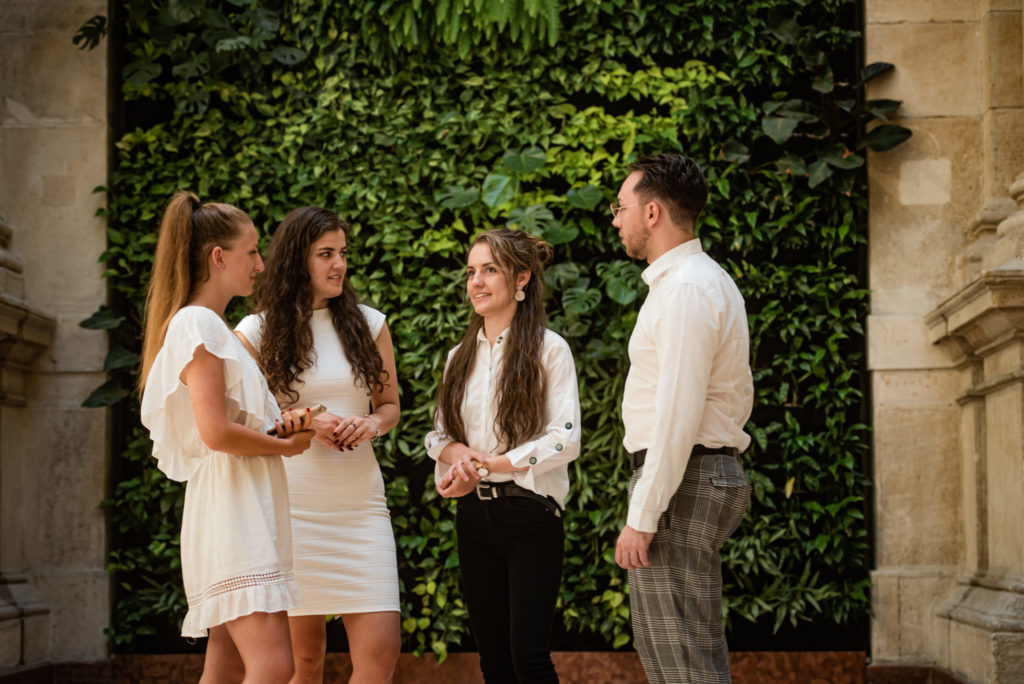
Author: Máté Kovács
I put on my white coat. I step into the lecture hall under the gaze of a bored audience of five hundred. Swirls of dust rise as the books are tossed and land on the desk and I run out of space on the blackboard by the time I finish the equation. That’s about the way I visualised my future when a child, although I was attracted more by the quantum theory and the loneliness of the laboratory than the crowded lecture hall.
But that was not to be. It would not have been that way even if I actually embarked on a scientific career instead of journalism; I would bring my laptop to the lecture hall now, while research and teaching are about not solitude but community and cooperation today.
Science or business? What distinguishes Elon Musk from Nikola Tesla?
Impoverished and lonely, the physician, inventor and engineer Nikola Tesla lived out his last years in Room 3327 in of the New Yorker Hotel. But for him we would have no multi-phase electrical network, remote control, radio or Wi-Fi, yet during his last years all he had for friends were pigeons. He fed them every day on the corner of the 6th avenue and 40th street, named Nikola Tesla Street Corner in 1994. His name has also been adopted by an electric car manufacturing company, whose owner, Elon Musk, was the richest man of the world for a while, with an estimated fortune of 151 billion dollars (Forbes).

The chasm between business and science appears to be infinitely deep. The scientific environment has changed a lot from the aspect of livelihood, however, graduate students are still facing a dilemma in that the business sector offers financially better opportunities, therefore most of them prefer to take a job instead of, or besides, continuing with their studies.
“You cannot support a family with a monthly 140 thousand scholarship” – says PhD student Máté Farkas-Kis in answer to my question how one can make a living while pursuing PhD studies. As an applied mathematician Máté specialised in financial mathematics and eventually obtained an MBA degree as well. Moving up the business ladder eventually, in his last managerial position, he was responsible for risk management. It was with several years of work experience that he applied for admission to a Corvinus PhD training course. At the same time, he is running his own business engaged in decision making skills development besides other activities, while at the university he is studying the mathematical dynamics underlying people’s decisions and their impacts on people’s lives.
PhD students often work full time while attending university. Head of Corvinus Doctoral Schools Dr. Gábor Michalkó says this is, to some extent understandable, because this amount is not sufficient for making ends meet.
“No university can expect the best and most talented students to stay with them and conduct research at the university for 140 thousand forints a month.”
Thanks to the Corvinus Doctoral Scholarship this amount can increase to 280 thousand forints from September this year. The special scholarship supplements the currently 140 thousand forint Hungarian state scholarship to stabilise the finances of the most excellent PhD students. Decisions on awarding the scholarship are made by the Doctoral Scholarship Council based on the number of points for admission and a declaration of excellence, the like of a motivational letter. Details of the conditions to be met for eligibility for the scholarship were discussed an article earlier.
State scholarship? Is Corvinus not a university run by a foundation?
PhD training is a special case: accredited PhD training programmes are co-funded by the state at all universities, whether run by the state, private entities or foundations, including Corvinus. This applies not only to students’ scholarships but also training costs.
Incomes had to be raised to make academic careers attractive besides careers in the business sector. The value of the state-financed scholarship, of an amount unchanged since 2016, has been eroded by inflation; starting salaries in the business sector have grown higher than that. Gábor Michalkó thinks the amount was determined in view of labour market opportunities, similar financial supports provided by universities abroad and the available funding sources.
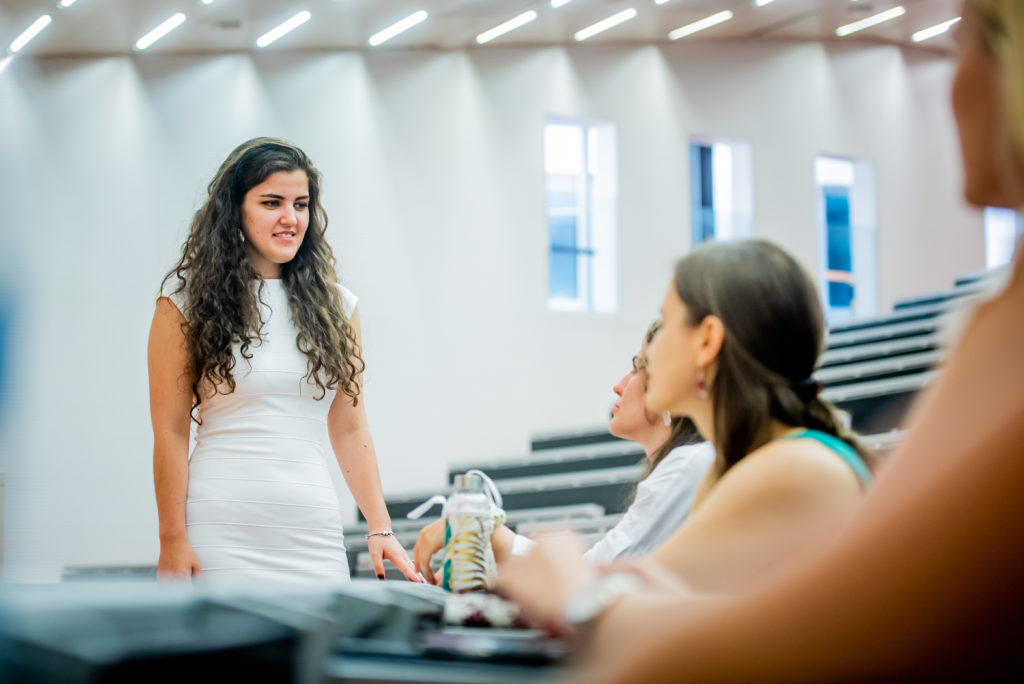
At the same time, the conditions applying to the scholarship restrict employment in the labour market: applicants may work in part time jobs of not more than 50% of the full time working hours, besides attending university. “We are not hypocritical, we also accept assignments that are compatible with our work as instructors and researchers but academics do not typically have multiple jobs at a time” – says Gábor Michalkó when I ask him about the balance between vocation and earning a living. He adds “you can only ride multiple horses simultaneously if they are running in the same direction”, in other words, if commercial assignments and scientific work can mutually benefit from each other.
Kincső Szabó finishes the English language Communication and Media Science English Master’s Programme this year. She was planning to work besides the doctoral training but in order to be eligible for the increased scholarship she may abandon this plan. “I was planning to work besides the course because I would need the money. If however, I consider what I wish to do: study at a very high level and merit a scholarship or study some and work some, I opt for studying.” Kincső considers that the risk of working is that it is at the expense of one’s studies.
“These are momentous decisions, however simple they may seem but if I can afford to, I would not like to take a job in addition to my studies and other university jobs, because my plan is to deliver 110 percent” – she adds.
The scholarship is not granted automatically for the four years of the training; students have to apply each year anew. Moreover, at the end of each semester they must prepare a report to be assessed and evaluated by a panel to be set up for this purpose. Whether the PhD student receives the scholarship for the next year as well, will depend on the adequacy of the report and the student’s performance during the preceding year.
The Doctoral Self-Government has, from the very beginning, been involved in the establishment of the scholarship. “We not only approved the doctoral scholarship but participated in the development of its underlying concept – President of the PhD Students’ Self-Government, Jácint Farkas, 4th year graduate PhD student say. “There was no segment we did not know about. Whenever we felt necessary we did express our opinion and indeed, most of our proposals were integrated in the regulations.”
The PhD Students’ Self-Government (Hungarian acronym: DÖK) was formed at Corvinus in 2018, in which Jácint Farkas also participated, together with the self-government’s first president Nándor Petrovics. Before that, Jácint worked as deputy president in charge of interest advocacy and he was elected president two years later, in November 2020 by the assembly of delegates after a public application process.
Jácint explains that this scholarship can provide a livelihood which is sufficient for a student to focus on their work in relatively undisturbed – if not actually opulent – circumstances. “If they are to produce excellent domestic and international publications, PhD students should be provided with a financial basis making it possible for them to minimise the efforts required for making a living.”
Students can apply for scholarship under the New National Excellence Programme (Hungarian acronym: UNKP) as another source of income, and they can participate in the work of institutions and the various departments’ research units, the University’s excellence projects, or work as instructors, to supplement the 280 thousand forint scholarship. The Cooperative Doctoral Scholarship is the only scholarship that cannot be combined with the Cooperative Doctoral Scholarship.
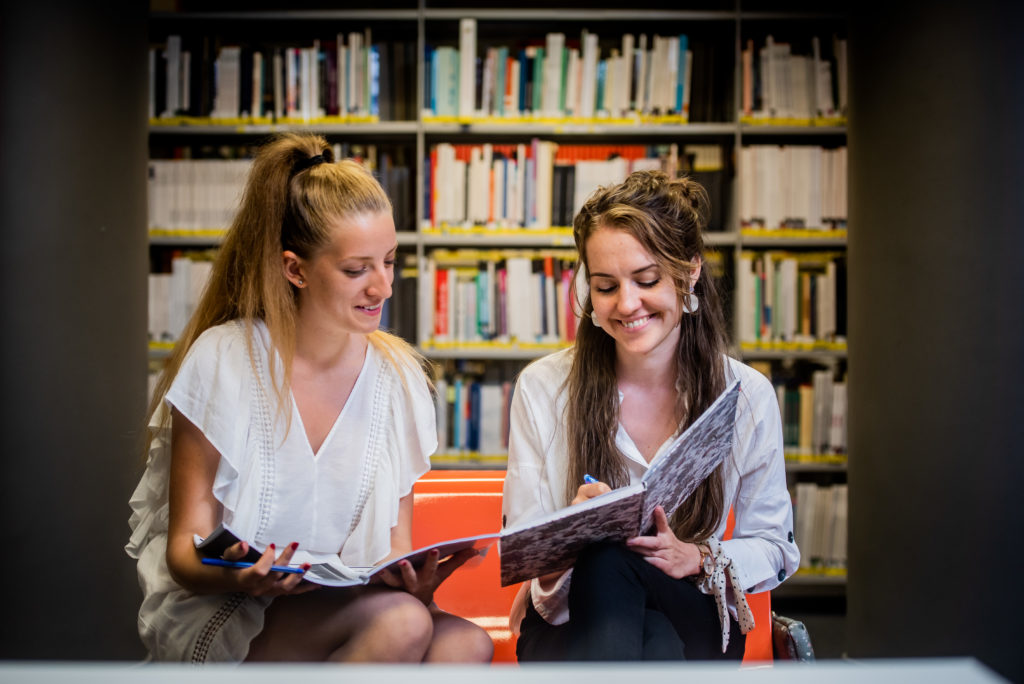
Where would Elon Musk be now without Nikola Tesla? – Business and science can even supplement one another
“Essentially, everybody is a mathematician” – says Máté, who is studying the ways the cognitive patterns derived from mathematics affect our decisions. “To put it briefly: am convinced that people with better mathematical capabilities are better decision makers and not only in their profession but in private lives too.” He is convinced that anyone can acquire those capabilities – with adequate support.
Máté taught maths first as a hobby, then in a teaching studio, but it was the market that he was really attracted to. As a manager, however, he found that many people are not capable of understanding complex processes and have no problem solving competence.
“I often found that my colleagues were expecting me, their boss, to provide them with solutions, and once I did so, they could give them a form. But what was missing between these two was the process whereby they think about the problem and present me with three or four possible solutions.”
And he found the same as an instructor as well. Students generally master and carry out calculations but they often do so without understanding them. He used to think a lot about how far back one needs to go in time to where people are as open to challenges as possible, where they are capable of forming their own opinions and adequately structure problems. “I identified higher education as one of the most important points where it could be possible to intervene. It would be much better if people were provided with these capabilities here too.” He thinks this is the last opportunity where the 12 years elementary and secondary school maths studies can be finally synthesized.
Besides his research project he teaches decision making techniques to basis course students, where they scrutinise and solve problems in teams, with the involvement of the stakeholders, in the context of interviews. “As well as thinking about problems or searching for sources on the internet, they should also meet someone with personal experience regarding this matter” – says Máté about the course.
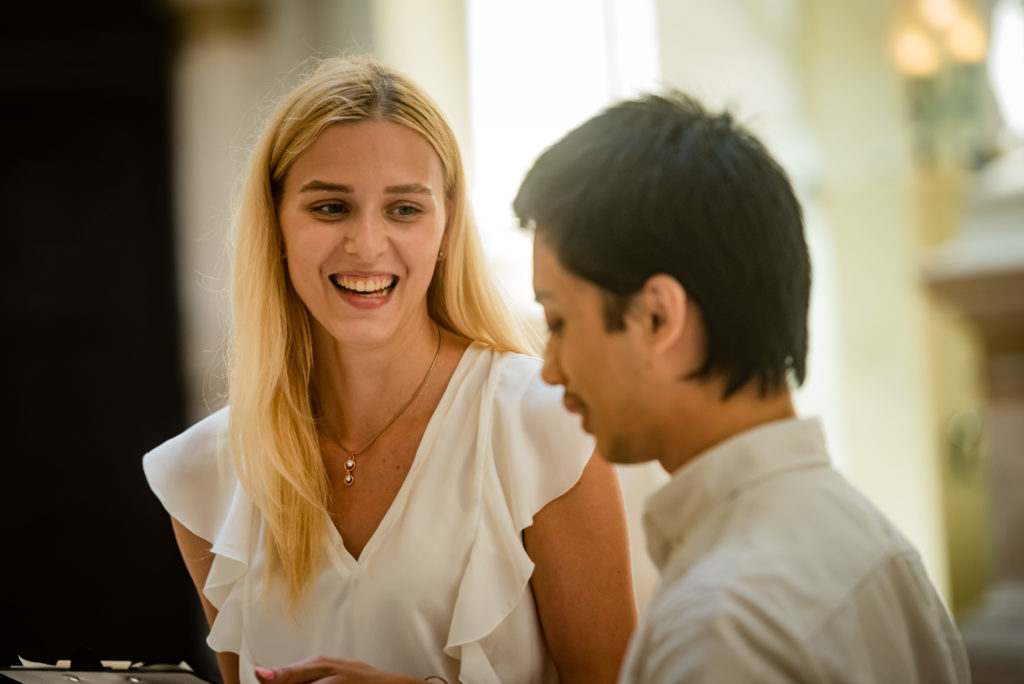
This year however, he moved on in this regard as well. With support by the Corvinus Science Shop headed by Dr. Réka Matolay, the students work together with the InDaHouse Association. The volunteers of the association deliver one-on-one and group development programmes for disadvantaged children living in Borsod county villages. The students participating in the course are seeking for a solution for reducing the drop-out rate among secondary school students living in deep poverty.
Máté started to teach at university with nearly twenty years of experience in the business sector, so he had seen how things were going there. “An instructor with an exclusively scientific career has only observed, but has never had to make, such business decisions. In this way I can transfer a different kind of an approach, I can add my market experience.” At the same time, he also notes that this is neither more, nor less, than what academics can provide for their students; it is simply a different point of view, contributing to the diversity of education.
And this is the very vision of two-way doctoral training, i.e. that as many as possible professionals working in practice, should be involved in education and research. “Doctoral training is also necessary for those wishing to acquire knowledge, get to know others and obtain a degree in this field but do not pursue an academic career” – says Gábor Michalkó. They are the ones for whom the expert career is an option, where they can acquire a scientific way of thinking, join research projects, use results in innovation and development and can contribute to higher education in return, either as a professional or a business partner.
“This is not a thick brick wall. Our aim is to bring the two world ever closer to each other” – Gábor Michalkó says. This problem was also highlighted by the coronavirus pandemic; scientists and practitioners need to collaborate in a variety of scientific fields today.
“I cannot just sit around in my ivory tower with my little theories but have to draw from, and feed back to, practice.”
Experts’ careers will not be easier, as the requirements, the syllabus and the criteria to be met for a PhD remain unchanged. The difference will be in speed and the technique of knowledge transfer, as Gábor Michalkó illustrated by a concrete example. PhD students often deliver classes between 8:00 and 10:00 on Wednesday mornings, but this is not possible for those working in the business sector. Personalisation does not mean that they do not need to participate in instruction but they can substitute classes for instance with Scientific Students’ Associations consultations, mentoring professional competitions or even providing further training at their own places of work.
As President of the PhD Students’ Self-Government Jácint receives a lot of feedback from students and says that demand for two-way training is also growing on the students’ side. “Many of our PhD students have said they wish to concentrate not on the academic career but make it in the labour market or business with the help of the doctoral programme and their PhD degrees.” By the way, this form of training exists in Western Europe as well, although under a different name, and it provides a qualification, the equivalent of the PhD, in the business sector.

How does one become a university professor?
As well as scientists and experts, PhD training is, of course, for the university instructors of the future. Who, and how, becomes a university professor, is however, not always so straightforward, because the road to becoming one is very rarely a straight one.
Kincső also came a long way before undertaking doctoral training. She has been performing since her early childhood: at only seven, she already took part in story telling competitions and always found the way to stand before an audience. Later she became interested in gender stereotypes, advertising and all kinds of visual presentation but did not know where all of these would take her.
“I was having a consultation last October with Dr. Petra Aczél, who is my consultant now, when she said that it would be worth and exciting to continue our work together during the doctoral training and if we reach our goal, I could continue working at Corvinus as a professor” – says Kincső, about the turning point orienting her towards doctoral training. “It is amazing” – she went on – “how deep an impact just a few words can have on one. Someone telling you that they see the potential in you and they believe in your accomplishing it, can give you immense power.”
She was interested in the teaching profession even before – she spent a year teaching children in an English language school in Budapest. She says she made her decision based on many small experiences over a number of years.
“It was a great many small steps that I started to gather in my backpack at an early age of six or seven; if I pour them on a table and put together like Lego pieces I can see them adding up to a decision and determination to apply for admission to the PhD school.”
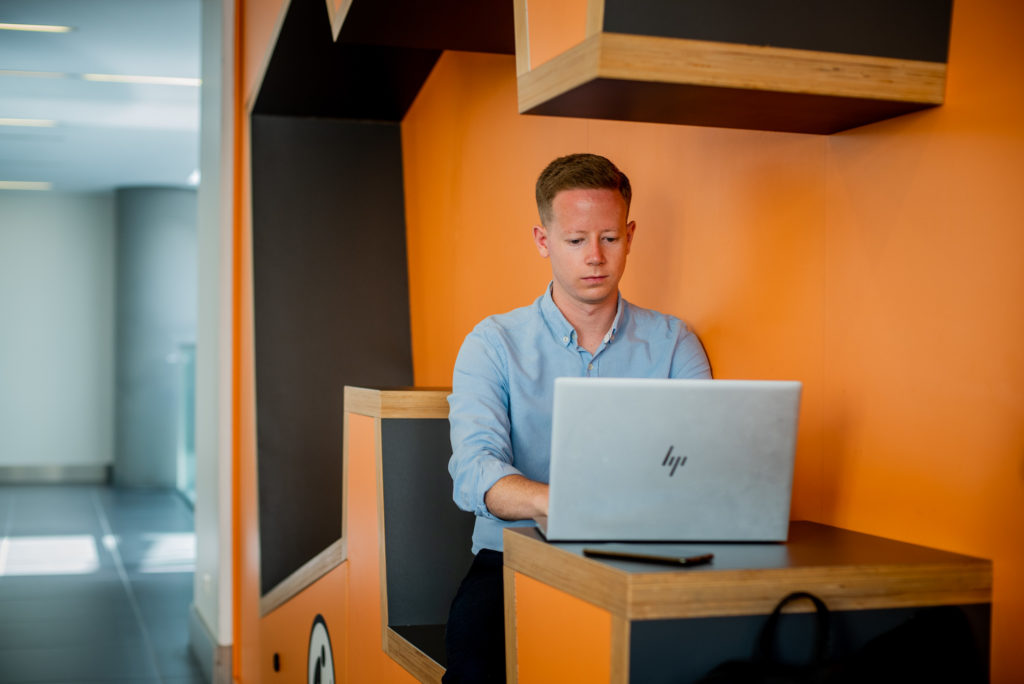
To teach at university one needs to have a PhD degree, be a PhD student or an external guest instructor. During his career in the business sector Máté practised teaching as a hobby. He also worked as an external theme leader but eventually, he opted for teaching. “I decided that if I am to embark on this, then it is worth going on along a professional career which is more than putting a “Dr.” before my name” – Máté says.
On the other hand, a teacher’s career consists of more than just face-to-face classroom type teaching. “One has to stand on the podium but also collaborate with the scientist community and the students too” – notes Gábor Michalkó, when asked about what skills a university instructor needs to have.
“Teaching is no longer just standing, and revealing things, on a podium ; rather, it is cooperation, shifting towards collegiality. One has to be able to convince students to participate in the Scientific Students’ Associations contests or other competitions. In research they have to be sent to make interviews, and this requires the consultant’s own system of relationships too.”
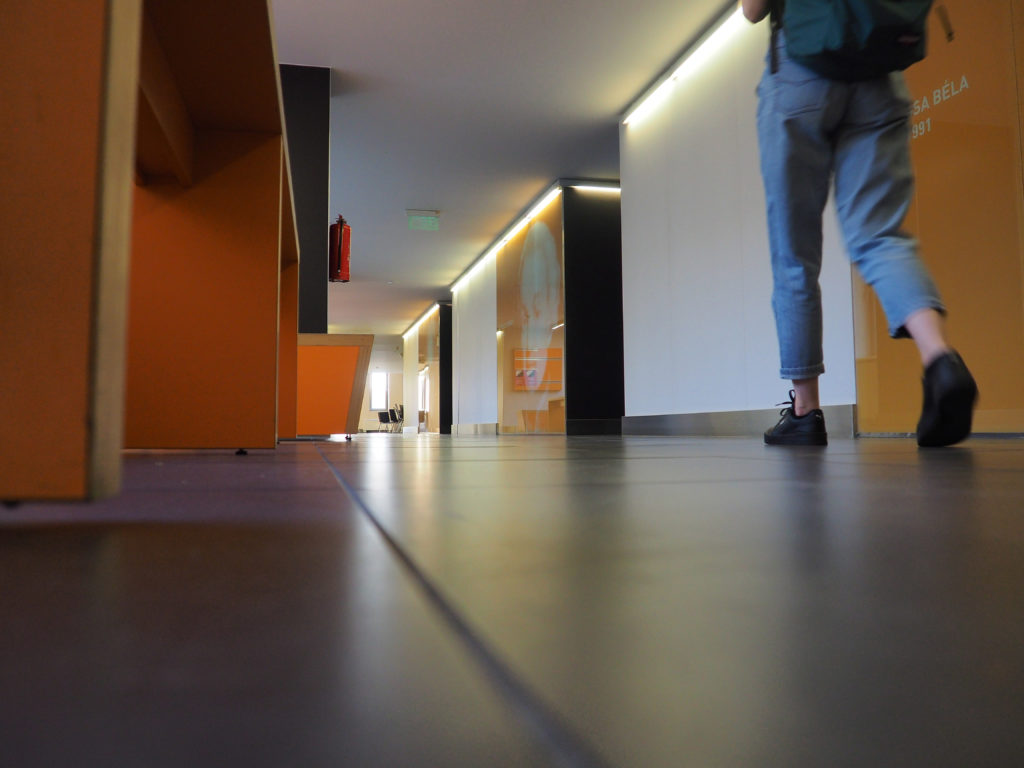
From school into workshop
PhD courses have also been renewed along with the transformation of Corvinus: seven PhD schools have been integrated into four and the approach to training has also been transformed. “Instead of conventional programmes focusing on teaching, the emphasis is now on working in workshops and on preparing our students for academic careers” - said Gábor Michalkó in an interview last year about the renewal.
“One can no longer cope alone: an academic career is not for lone sailors. The world of science requires that we works in large teams”
– he adds this time, when I ask him about the system of academic relationships. “Some are stronger at writing and can write a better article, others can raise funds or are better in field work, and yet others excel in data processing – so there is a need for a team.”
Máté is not doing research alone either; with scholarship under the Cooperative Doctoral Programme he works with the help of his consultant as well as a company expert. We are having our discussion on Zoom, and he talks for nearly half an hour just about his theme. “There are lots of very good encounters and professional discussions taking me forward and inspiring my thoughts” – he says about the scientists’ community.
He thinks most qualified publications are works of teams. “There is a level of individuality where what I know about the area concerned is no longer enough and I have to cooperate with others.” He says PhD training is a democratic system: the theme leader produces an evaluation at the end of each year and feedback can also be given. Continuous dialogue is key.
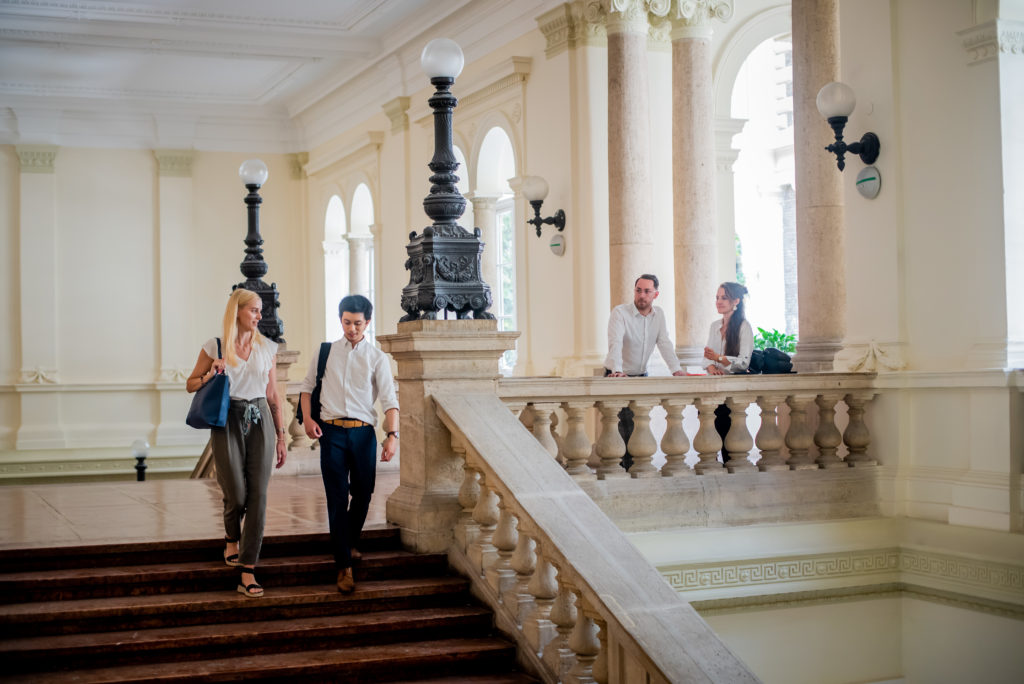
In his research project Jácint studies the philosophical aspects of disability and accessibility, along with how these concepts can be widened and deepened, as well as the possible implications of such deepening in day-to-day life. “I was born with reduced mobility therefore I live with this disability on a daily basis. I have drawn a lot of experience from this in all facets of life; this is why I have chosen this broad perspective – Jácint says. “I am trying to create, and philosophically substantiate, new concepts that can be extended to society as a whole in a positive sense.”
Accessibility is an important aspect in PhD training as well. “What this means is not that we have to remove all possible obstacles from students but that we try to operate an environment in which disadvantages and difficulties can be understood more easily by a joint effort. In some cases they can be overcome, while in others they do not even need to be overcome but simply understood.” – he adds. Jácint does not think that all difficulties should be eliminated.
“Understanding is very important, and so is joining cooperation, as a means of overcoming difficulties.”
The researchers’ community is operating not only in Hungary. “This 93 thousand square kilometre area is quite large, there’s a lot to do here but in order to be truly effective and efficient one needs an internationally embedded background” – notes Gábor Michalkó. Corvinus’s PhD students can join international research and other projects and are provided with a yearly budget of 350 thousand forints for participation in domestic and international conferences. They can also be awarded a scholarship for a three-month study trip abroad.
To cater for international students, and because of the international context, all classes and lectures are delivered in English, often by renowned international lecturers. There is, for instance, a course where students can meet editors-in-chief of high profile periodicals to learn how to write high quality scientific articles.
“PhD training is for all. I mean, for all those who really want to complete it.”
If one already knows that it will be worth, yet the question arises before applying: should I dare to apply for admission? Am I good enough for this? A four-year commitment takes quite a substantial decision involving a wide variety of considerations but my discussion partners agree that it should not be determined by fear.
“Fear is the mind-killer” – as we all know from the film Dune. In that particular scene a Bene Gesserit witch is testing the hero, Paul, who must stick his hand into a box to be exposed to all kinds of experiences and sensations; but in fact it is only his nervous system being stimulated. He feels his hand burning, being pricked, suffering excruciating pain and would pull his hand right out by reflex. But he cannot do so because the witch holds a pin to his neck: the moment he pulls his hand out, he dies. Meanwhile, Paul keeps saying: “Fear is the little-death that brings total obliteration.” – so he manages to keep his hand inside for quite a while.

This is Máté’s favourite quote for a reason. He says there are many situations in life when one dares not act for lack of self-confidence, when – he thinks – the uncertainty one faces only exists in one’s mind. He is convinced that the distinction between those who should and those who should not apply for admission to a PhD course is a stereotype that should be done away with.
“I can only encourage everyone, if they wish to apply for admission to a PhD course they should do so even if they do not have the self-confidence. On the one hand, self-confidence can arise and on the other hand they will end up in a community where they are provided with all possible support” – he says.
Kincső was not able to make a prompt decision either. “A woman has to be aware of the fact that it will take four years, so everything will be put off. Starting a family, finding a partner, socialisation at work.” She had to make up her mind between devoting four or five years to a scientific career or doing something else. “These four years can at the same time be regarded as a period of time that does not take but add things. It’s a matter of perception.”
The four-year programme is made up of two years of training and two years of research. In the first phase participants learn about research methodologies required for their thesis, and then they take a complex examination. This is followed by the research phase during which they focus on research itself, and the text. This phase is closed by a draft, a workshop discussion and a public defence of the thesis.
Kincső is sure, at the same time, that one must really love their subject. “If you find once that you are no longer interested in it, there is nothing more in it for you, that you have put together all of the puzzle pieces and do not wish to pass this theme on to the next generation, you should not go for this. Because then you pull yourself into a trap and just waste your time. You must be sure about what you wish to create for yourself and others during the PhD course.”
From the aspect of capabilities, three things are indispensable, according to Máté: an open and holistic way of thinking; commitment, that is, the student should want to carry on with it, even if short of self-confidence; and willingness to work hard. “One has to read a lot. Any research involves extensive reading and following up on references. One has to delve deep into the subject and see what has already been achieved by others. The way to adequately present my own thoughts is through reading what others have been thinking about the topic” – Máté comments.
“Reciting the Pythagoras theorem in an exam is not much of an achievement because anyone can memorise it. The thing is to prove it.”
This kind of thinking applies very much to the doctoral thesis, in his opinion. “Fine, I’ve got an idea for research, but how do I go about it? Well, first of all I immerse myself in literature, which is vast on this planet by the way, to see if it has already been studied by others before me to avoid being the umpteenth inventor of the same thing.”
“You need a theme that is full of content” – Kincső adds, invoking the thoughts of Dr. Judit Sass shared with the students at a seminar in preparation for the writing of the thesis. “The theme should be as broad as possible and find in it the little paths that can lead you to where you can say: yes, here’s a puzzle piece missing, let’s do some research on it, let’s find it together!”
Applications to the PhD courses of Corvinus can be submitted between 15 and 30 April. For more details, please visit Corvinus’s admission to PhD courses page.